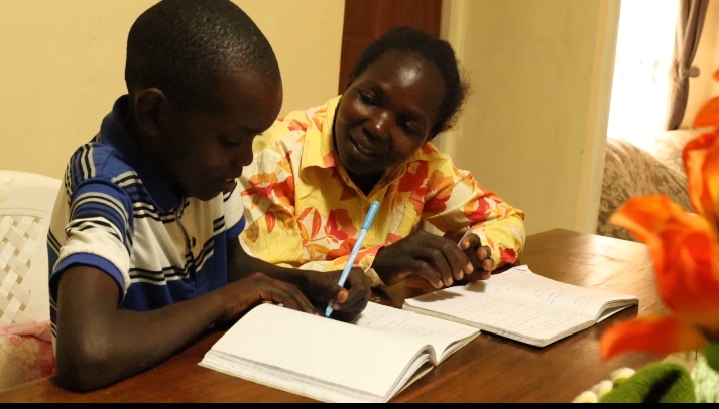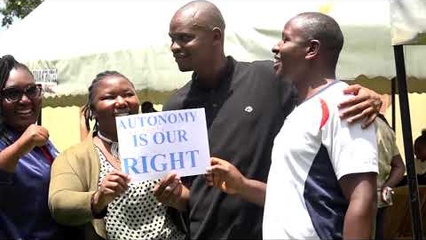The intricate explanations on the government’s ambitious programmes to restructure education as frequently explained by relevant figures through various press interviews points to a regime keen oversee successes in the sector.
Listening to President Ruto’s policies pinpointing at proposed budget allocations and analysis of expected achievements portrays a leader evidently familiar with intricate and technical issues surrounding education policy matters.
The hands-on involvement with education issues, even before the findings of the 42-member Presidential Working Party on Education Reforms (PWPER) led by Prof. Raphael Manavu were revealed, indicates the State’s determination to arraign education with the country’s economic and development aspirations.
Policy experts and analysts have indicated that no past President has ever shown personal interest on the education ministry’s technical issues as shown by Ruto.
Majority of the analysts including those specializing in political studies have indicated that his decision to first trail his attention towards education meant to oversee research-based changes to favour major and positive development transformations across the board.
Education News perused some of the opinions on the President’s style of work and it emerged that most analysts had admiration of the government’s thorough understanding and involvement with technical issues inside government departments.
Leading political analysts led by Macharia Gaitho have in the recent past appreciated the style of managing his government which they have commended as hands-on and education based away from what past presidents favored.
Evidence of that came to the limelight recently when he met legislators, with Mr. Gaitho noting Dr. Ruto’s, “hand-on approach, close attention to detail and mastery of the policy platforms on which he was elected”.
That came up via a tweet from the Ministry of Information CAS Dennis Itumbi; “The Parliamentary Group Meeting at State House is literally a classroom. MPs, Women Reps, Senators found notes, pens and notebooks, and from 8am, it has been a proper classroom on Finance Bill, Housing and Health and Government plan”.
According to the CAS, the class was taught by the President clearly showing that this time around, the country has a leader who takes it as his personal responsibility to educate his legislators on the finer details of the Finance Bill and other sensitive matters.
While previous heads of state would have hosted Members of the National Assembly and the Senate to impress on them the importance of uniting behind the government, Ruto preferred to the leaders through some education session to grasp his government’s policies.
Mr. Gaitho noted that in the past the heads of states’ forums with leaders or technocrats would most likely have been “about using the bully pulpit to whip them into line, rather than an educational session”.
Showing outright sense of technical professionalism, recently apart from President Ruto himself, Principal Secretaries and government technocrats also spent the day at State House taking the MPs through the finer aspects of taxation, petroleum pricing, the controversial housing development levy, universal health care and other policy proposals.
It has been noted that even as the President employs education and persuasion to get his troops into line, in future perhaps he will have to tackle – on disciplinary grounds – those who fail or defy policies he is employing to ensure success of his programmes.
Having shown right from the onset that he was keen to ensure strict discipline and adherence to policies in management of finances among other issues apparently, his hands-on touch had not made him uncomfortable with delegation.
In fact recently he, with ease, allowed his deputy Mr. Rigathi Gachagua to chair a cabinet meeting in a feat termed as rare and a first for a Kenyan President.
Mr. Gaitho indicated; “Since independence, all Presidents have jealously guarded their prerogative on the chairing of cabinet meetings”.
The analyst noted that from those recent actions, it became apparent that for Ruto, politics was not a distraction but a full-time occupation around which everything else revolves, including business and religion.
While pinpointing at the differences in leadership between Ruto and his former boss Uhuru, Mr. Gaitho described the former as having been always the relaxed, fun-loving ‘royal’ who appeared to have been dragged into the family business and politics almost reluctantly.
According to Mr. Gaitho, Uhuru often gave the impression that he would have rather much been left to engage in more leisurely pursuits than the hurly-burly of politics.
President Ruto does not seem to be distracted from his leadership business and in terms of pursuing his agenda, he leaves nothing to chance as demonstrated with his State House tutorial sessions.
By Robert Nyagah
Get more stories from our website: Education News
You can also follow our social media pages on Twitter: Education News KE and Facebook: Education News Newspaper for timely updates.






